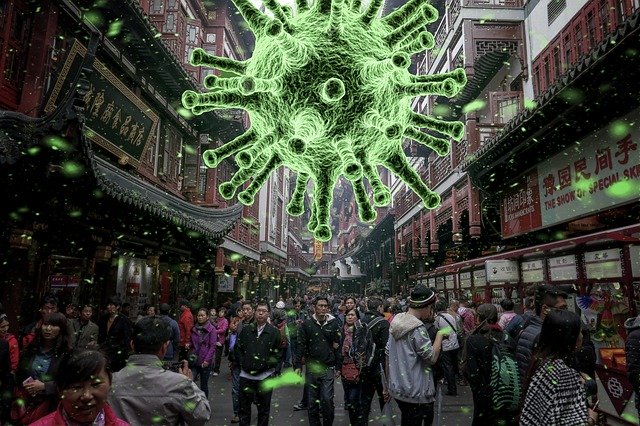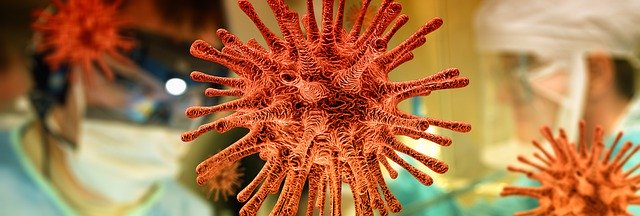Long Term Health Effects of COVID-19
The world is most definitely not in the middle of The Carpenter’s famous love ballad, but the title touches on a valid concern. Is this virus only months old or is our worldwide awareness of it only months old? Questions remain concerning the long-term health effects of this virus on personal health, medical infrastructure, business, economies, and every other stakeholder in the pandemic. Estimates report as few as 5% and up to 80% of COVID test positive people remain asymptomatic or only mildly affected, but for the rest of the population, questions arise regarding the long-term effects. The long-term effects of SARS (Severe Acute Respiratory Syndrome) which infected 80,000 people worldwide and MERS (Middle East Respiratory Syndrome) are still being tallied and studied. COVID-19 falls within the same coronavirus spectrum. Research from China involving 25 patients, 12 years post SARS infection vs. a non-infected control group illustrate some disturbing results:
• They had at least one other lung infection since their SARS illness
• Elevated cholesterol levels across the board
• 1/3 of the 25 had at least 5 colds during the previous year which no one in the control group reported
The study concluded that those infected with SARS reported poorer health in general including elevated inflammation levels, tumors, glucose and lipid metabolic disorders, chronic fatigue and impaired lung function.

Over 16 million people have been deemed ‘recovered’ of the over 24 million people infected worldwide. In March of this year, COVID-19 was believed to be primarily a respiratory disease. This ‘respiratory disease’ causes an elevated response in the immune system which seems to exacerbate damage. Aakriti Gupta MD, Columbia University Irving Medical Center Cardiology Fellow was among the first group to recognize and treat COVID-19. He realized it was impacting so much more than the respiratory system. He noted heart, brain and kidney injury, high blood sugar levels without an accompanying diabetes diagnosis and the thrombotic complications of clotting, inflammation and immune system overdrive. He now believes it needs to be thought of as a multi-system disease. A colleague, Dr. Mahesh Madhaven, Cardiology Fellow at Columbia University Vagelos College of Physicians and Surgeons says “This virus is unusual and it’s hard not to take a step back and not be impressed by how many manifestations it has on the human body.” Long term effects of COVID-19 infection have the potential to manifest in the following areas:
Blood Clots
Blood clots have been reported in higher rates than normal. Clots are unfortunately mobile and can land on sites that cause damage to organs resulting in chronic health conditions or death; in particular stroke, lung blockages and heart attacks. A higher rate of stroke has been reported in younger patients not usually deemed at-risk. Clots traveling to the lungs in the form of emboli cause chronic limitations such as fatigue, shortness of breath, palpitations and reduced physical activity. Clinicians are now studying base-case use and timing of anti-coagulation medication in critical COVID patients.
Inflammation
This is the over stimulation of the immune system and generally agreed to be at the root of every condition. This virus has proven itself to be particularly adept at attacking blood vessels leading to increased inflammation. In initial treatment protocols, physicians wanted to avoid the use of steroids but at least one clinical trial of Dexamethasone resulted in a 1/3 reduction in deaths for ventilated patients. https://www.medicalxpress.com/news/2020-07-physicians-comprehensive-covid-effects-lung.html
Cardiac Damage
Clots cause heart attacks but the elevated amounts of inflammation associated with COVID-19 cause increased damage to the cardiac muscles. This myocarditis in turn releases cytokines in a flood of immune cells that is normally an appropriate response. In the case of severe COVID-19 infection this normal response goes ballistic, worsening existing heart conditions, causing permanent scarring or heart failure.
Kidney Damage
This virus uses the ACE2 receptors to gain access into the kidneys where it is found in greater than normal concentrations. In New York City, renal failure occurred in 50% of ICU COVID-19 patients. Of that group, 5-10% required dialysis. The long-term damage is unknown at this time and will require continuing monitoring and study.
Lung Damage
Lung pain, dry cough and physical limitations due to shortness of breath have been reported by patients’ weeks after they have been labeled ‘recovered.’ The immune response ignited by this virus leaves evidence of gray particle scarring called ‘ground-glass opacities’ which may never heal. Research has shown survivors of the similar virus causing SARS and MERS experience long-term pulmonary damage. There is speculation that those with underlying conditions like asthma or HTN may be at risk for a higher rate of lung damage.
Neurological Damage
Neurologic symptoms that run the gamut from headaches, dizzy spells, fatigue, and loss of smell have been reported in 1/3 of COVID-19 positive patients. Loss of taste and loss of consciousness have been reported as well as an increase of stroke by 6%. The muscular weakness, numbness, burning and prickling feelings experienced are like those experienced by SARS/MERS patients. In patients intubated for 2-3 weeks, 8-9% report delirium. 25% of patients on ventilators for 30 plus days require increased levels of sedation and experiences with ICU delirium have been reported. ICU delirium is not a new phenomenon, but the question remains whether it is due to the virus or the sedation. Physicians and other health care professionals need to be aware of and actively watching for things like decreased concentration and memory as well as loss of function in the peripheral nerves of the extremities. One survivor, Lauren Nicols refers to this as a “true roller coaster of symptoms and severities, with each day offering many unknowns.” She goes on to say she can feel fine one day and be completely sidelined the next.

“Scientists all over the world are working at an unprecedented rate towards understanding how this virus specifically hijacks the normally protective biological mechanisms. We hope that this would help in the development of more effective, precise and safer treatments for COVID-19 in the near future,” says Kartik Sehgal MD, Hematology/Oncology Fellow at Beth Israel Deaconess Medical Center/Harvard Medical School. More than 24 million have been infected worldwide since reporting first began. Chronic health issues ranging from mild, moderate to severe encompassing physical, cognitive and psychological disabilities post COVID-19 may have healthcare infrastructure implications for years to come. British physician Nicholas Hart, who treated Prime Minister Boris Johnson calls COVID-19 ‘this generation’s polio.’ Like polio, this may entirely reshape global healthcare.
